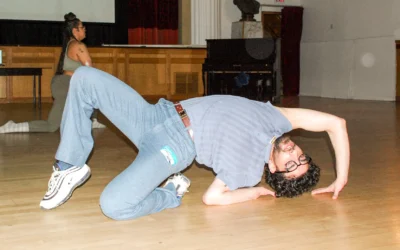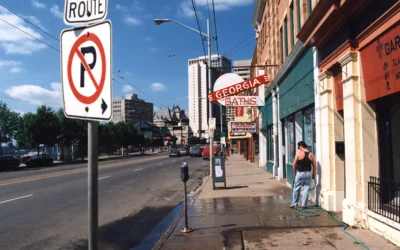Buying a house has always felt like something I would have to worry about later in life. For now, I’m focused on paying rent, tuition, and maybe saving a little when I can. However, with the current housing crisis and inflation, I have found myself looking into doing that a little sooner than I had intended. I feel that if I purchase a home, I will feel a little more secure and not have to worry too much about the rent going up, plus I can finally have my little garden that I’ve always wanted, which could help with some of the grocery needs. But what will it actually take to own a home someday? Is it as easy as those ads make it seem?
I started looking into mortgage rates, the housing market, and even an FHSA (First Home Savings Account), and I’m not going to lie, the whole process feels overwhelming. But it also made me realize that this stuff is really important, even for students like us.
Let’s start with mortgage rates. Why are they important? It’s no secret that everything has gone up in price over the past few years, and mortgage rates have become a critical factor in deciding whether buying a home is even affordable for many Canadians. These rates determine how much extra you’ll pay on top of the loan itself, and they fluctuate based on decisions made by the Bank of Canada. Mortgage rates are currently sitting at around 5 per cent, making monthly payments higher than they were a few years ago. So, what does this mean for us as students or young adults considering homeownership?
This increase in rates makes it harder for young people to envision buying a home, especially as other costs continue to rise.
I spoke with Thomas Harrington, the founder of Black Sheep Realty, who believes that these rate hikes are making it more challenging for first-time homebuyers to enter the market, especially as inflation continues to drive up the cost of living.
One option that caught my eye is the First Home Savings Account (FHSA). This is a program aimed at helping first-time buyers save for a down payment. It allows you to contribute up to $8,000 a year, with a lifetime cap of $40,000, and offers tax benefits similar to an RRSP or TFSA. But is it worth opening one as a student, when most of us are just trying to make ends meet? Harrington believes that having the FHSA as an option may increase demand, but won’t resolve supply shortages without increased construction.
As I explored options, I came across rent-to-own opportunities, which sounded like a potential middle ground. However, when I asked Harrington about it, he said, “I would say no, just because a lot of that rent-to-own stuff is like kind of slightly shady Facebook Marketplace deals… If it was government-backed somehow, that might be a plausible option to try to bridge the gap as we move forward.”
Without regulatory safeguards, rent-to-own deals can easily turn into financial traps. The lack of oversight makes it difficult for young people to rely on these opportunities as a stepping stone toward homeownership.
Then there’s the housing market itself. Prices for both new and resale homes vary wildly depending on where you’re looking. Although inflation seems to be dropping, affordability is still a huge concern. Are we better off renting for now, or should we start saving for that down payment sooner rather than later? These are the questions I’m trying to answer as I dive deeper into this topic. It’s clear that owning a home might offer stability and long-term benefits, but getting there isn’t as simple as it looks in those glossy real estate ads.
Inflation affects us all — even the rich. In 2022, inflation surged to 8.1 per cent. However, in October, The Bank of Canada stated that “inflation is now around two per cent and is expected to remain near the middle of the Bank of Canada’s control range of one per cent to three per cent over the projection.” This is positive news, but why does it still feel like life is becoming harder to afford? Well, that’s because inflation going down doesn’t mean that prices are dropping. It just means that the rate of increase has slowed down, and prices continue to rise, just at a slower pace. So really, the main issue is how much income we’re able to bring in.
So, should we be considering purchasing a home someday? And how does it compare to renting? As we all are aware, the housing situation is bad right now in Edmonton, and all across Canada. Edmonton used to be known for its affordability, but for some, it now feels like what big cities like Toronto and Vancouver used to be. The rental market has also gone up, and many new builds no longer include utilities, which adds even more financial strain on renters. Private rentals are also taking advantage of the economic status and have increased the rent to match the current market.
The journey to homeownership is complicated, and whether you’re renting or saving for a down payment, understanding mortgage rates, inflation, and the state of the housing market is essential. It’s clear that owning a home might offer stability and long-term benefits, but getting there is far from simple.
For now, it’s about balancing the desire for security and independence with the reality of today’s housing market. While renting might feel like a temporary fix, buying a home remains a distant dream for many. However, with the right planning, persistence, and knowledge, homeownership doesn’t have to remain out of reach forever.
Photo by Amanda Erickson





0 Comments